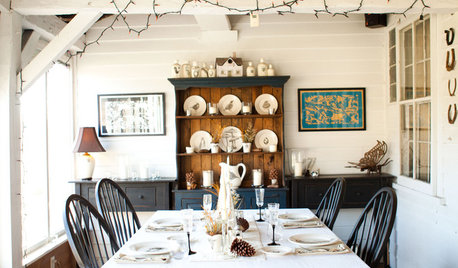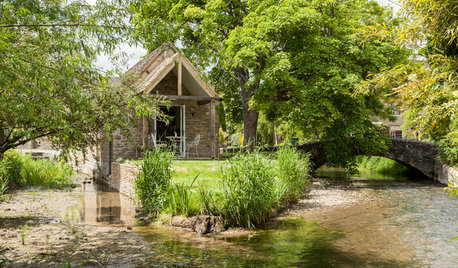English Civil War
ccrdmrbks
17 years ago
Related Stories

GARDENING GUIDES5 Ways to Naturally Win the Weed War
Show irksome weeds no mercy with these tricks for combating them sans chemicals
Full Story
HOUZZ TOURSMy Houzz: Heirlooms and Antiques Befit a 1778 Vermont Home
Family treasures fit right in with original details in a spacious pre–Civil War home renovated with respect for its history
Full Story
KITCHEN DESIGNHow to Plan a Quintessentially English Country Kitchen
If you love the laid-back nature of the English country kitchen, here’s how to get the look
Full Story
DECORATING GUIDES15 Ways to Get the English Cottage Look
Look to nature, inexpensive fabrics and small swaps to conjure a country-house vibe
Full Story
DECORATING GUIDESA Handy Guide to English Antiques
Buying and owning old furniture is more fun and interesting when you know a little history
Full Story
HOUZZ TOURSMy Houzz: An 18th-Century Cottage on a Tiny English Island
Once a place for a miller to store his cart, this tiny building is now a cozy home, redesigned using reclaimed materials
Full Story
TRADITIONAL HOMESHouzz Tour: A Historic Charleston Charmer Is Reborn
A pre–Civil War home is brought back to life with a mix of traditional and modern decor
Full Story
HOMES AROUND THE WORLDMy Houzz: Dinosaurs and Fun Collectibles in a Cotswolds Farmhouse
A creative English couple have jazzed up their cozy Oxfordshire home with cool and colorful toys and collectibles
Full Story
LANDSCAPE DESIGN15 Great Ideas for a Lawn-Free Yard
End the turf war for good with hardscaping, native grasses and ground covers that save water and are easier to maintain
Full Story
CITY GUIDESHouzz Travel Guide: Atlanta for Design Lovers
You'll find world-class museums, restaurants, hotels and shops in Georgia's woodsy, welcoming and charming capital
Full Story



ccrdmrbksOriginal Author
cindydavid4
Related Discussions
Civil War Kitchen Garden- Midwest
Q
Civil War Era heirlooms?
Q
Historical Fiction Discussion Selections?
Q
Civil War Markers
Q
friedag
veer
ccrdmrbksOriginal Author
friedag
wrmjr
veer
ccrdmrbksOriginal Author
friedag
ccrdmrbksOriginal Author
rosefolly
cindydavid4
froniga
veer
ccrdmrbksOriginal Author
amy_nj6
veer
amy_nj6
philc
woodnymph2_gw
veer
philc
cindydavid4
veer
cindydavid4
woodnymph2_gw
philc
woodnymph2_gw
veer
veer
woodnymph2_gw
georgia_peach
sheriz6
carolyn_ky
cindydavid4
woodnymph2_gw